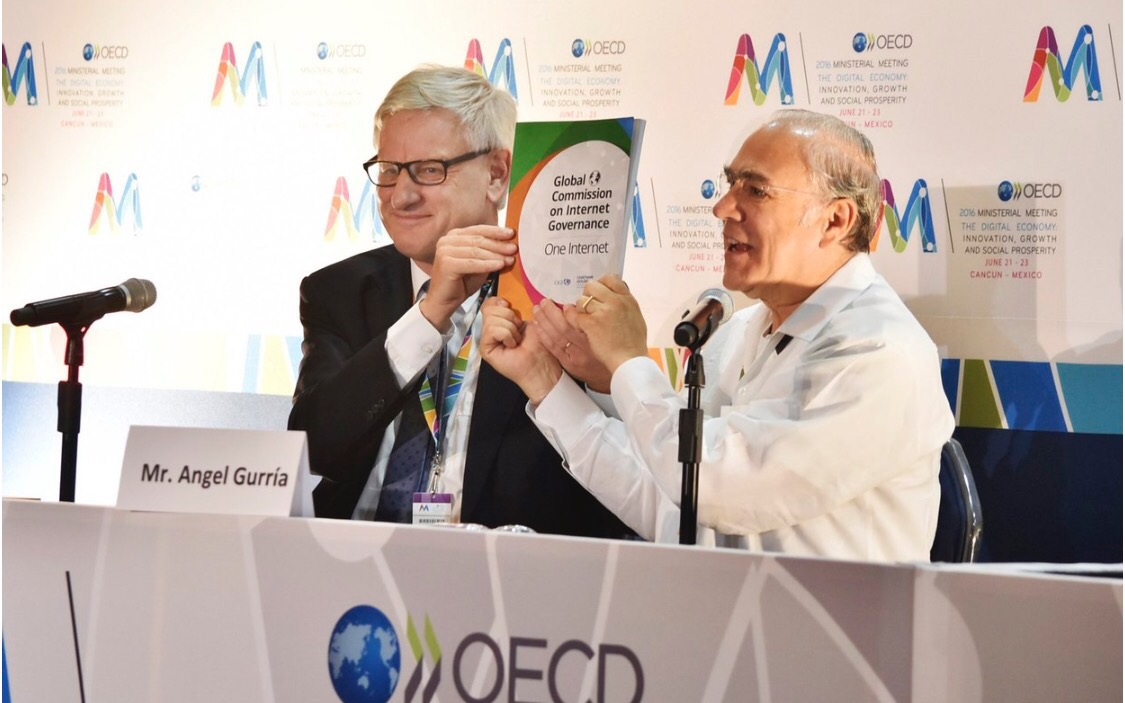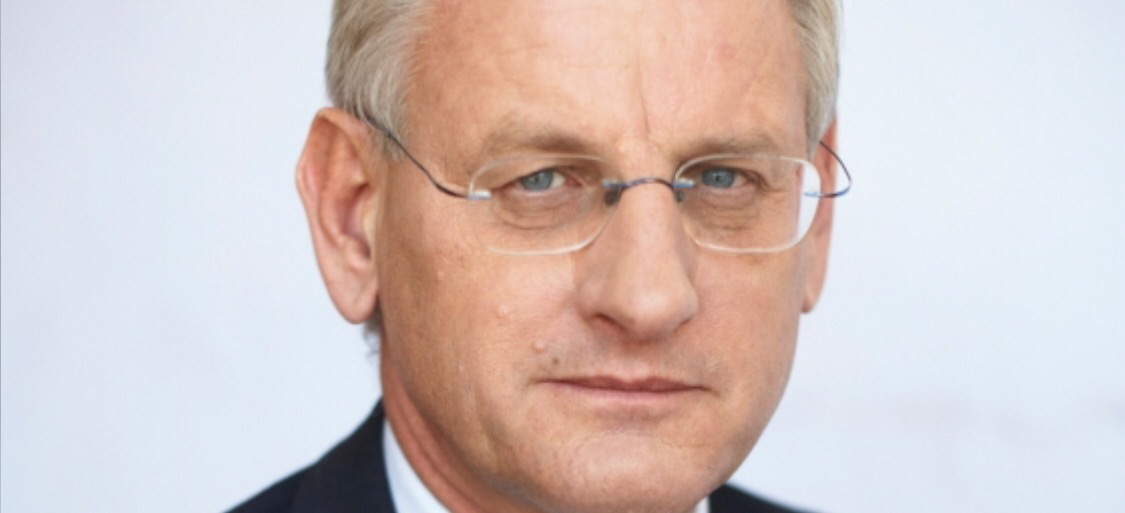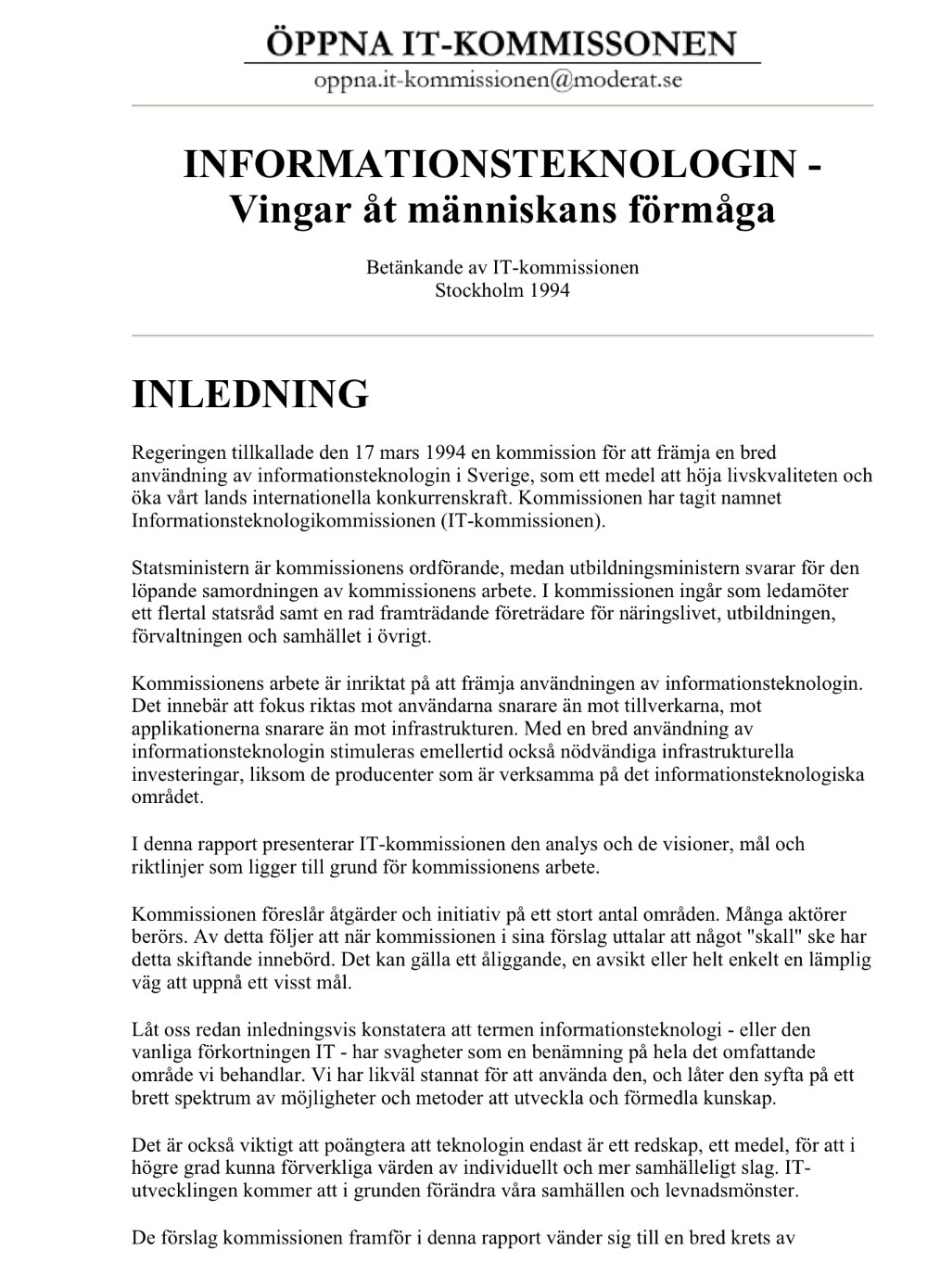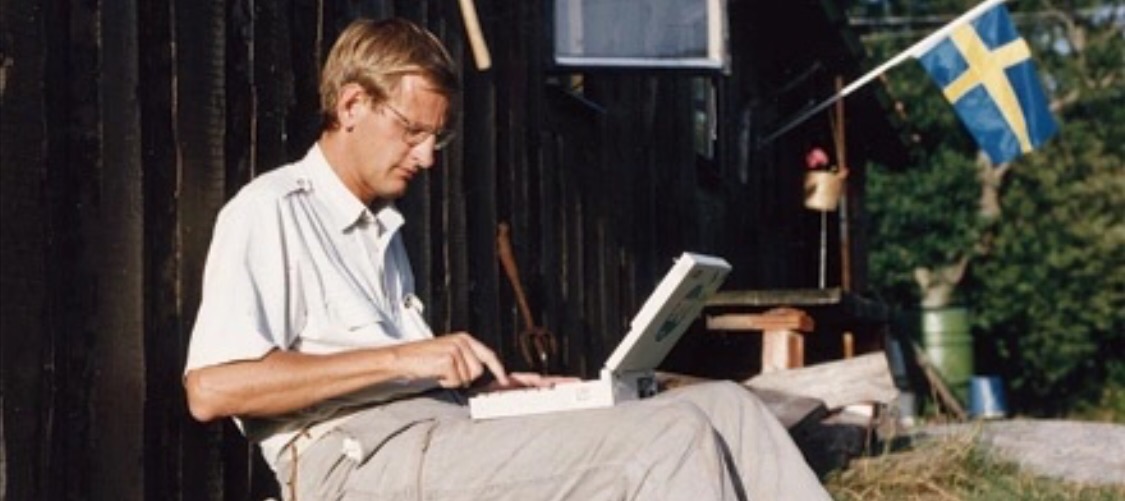Former Swedish Prime Minister and Minister of Foreign Affairs, Carl Bildt, has today written an interesting article about the new digital world in one of the leading Swedish newspapers.
Bildt has as Head of the Global Commission on Governence Internet, just presented the ORCD report “One Internet”.
 Carl Bildt och OECD:s generalsekreterare José Ángel Gurría.
Carl Bildt och OECD:s generalsekreterare José Ángel Gurría.
Here is a non-official translation of the article from todays’ Svenska Dagbladet:
‘Sweden presented in 1994 the first natuonal IT Commission Report called “wings to human ability”. Many experts and politicians were doubtful and wondered what we were actually doing. They claimed that Internet was a tool for experts, individuals and nerds, probably a trend that would pass, and hardly something that politics and public debate should deal seriously with. Such was the tone of many comments.
 Carl Bildt, former Swedish PM and Minister of Foreign Affairs
Carl Bildt, former Swedish PM and Minister of Foreign Affairs
But the Swedish IT Commission in 1994, was nationally and internationally groundbreaking. No other country had made any similar strategy at the time. And through deregulation and research efforts, Sweden was clearly in the starting blocks. GSM technology for mobile telephony had just made his entrance.
 The historical Swedish 1994 Report on Internet
The historical Swedish 1994 Report on Internet
The Swedish IT Commission set up a long-term and ambitious goal: in 2010, Sweden would be in the international top level in the use of new information technology. It was not the technology that was the center of the work – it was instead the society’s use of the width of the technology.
Today this report from the IT Commission is a center piece of the Internet Museum in Stockholm, and my e-mail exchange with President Clinton as Prime Minister is displayed at the Newseum in Washington. And in many respects, developments since then actually overachieved the goals we set for more than two decades ago. But now we face a new and more pervasive stage.
 Carl Bildt sent the first official e-mail between two national leaders when he e-mailed President Bill Clinton in 1994
Carl Bildt sent the first official e-mail between two national leaders when he e-mailed President Bill Clinton in 1994
Over the past two years I have led a broad independent international commission on Internet issues. We have listened and discussed in Stockholm, The Hague, Bangalore, London, Seoul, Ottawa, Accra, Palm Springs and Amman, and this week we present our report for the OECD in the debate Cancún.
I have said that we are entering in the fourth industrial revolution. I think there is more wrong than right. I think we are in fact at the beginning of the historical shift from the industrial to the digital age, and that this means a lot more than just another industrial transformation.
On sensationally short time the internet has become the major world infrastructure. And now the network faster than becoming the infrastructure of every other infrastructure in our communities’.
Here is a link to the report “Global Commission on Governence Internet: One Internet” (click here): https://www.ourinternet.org/
The last 15-20 years Customs administrations all around the world have changed their control strategies from traditional controls to risk management.
Approximately 10-15 years ago we also started to think about the fact that if we can manage the risks better identifying high risks and doing more efficient controls through risk based profiling and targetting to detect our control objects, then what should we do about detected low risks. Compliance Management was born.

This meant that we moved away from looking at procedure and transaction for low risk operators and concentrate about the operator. The idea being that an operator meeting certain pre-determinded criteria and requirements, can voluntary apply for a specific low risk status. The company must show that the compliance level is acceptable and Customs validates this trough a set of measures. The compliance levels are then monitored and improved through an active partnership with the aim to minimize risks. The low risk company gets in return a different control programme – thus a different treatment – and a set of benefits related to speed, predictability, service and cost.

This means that the important questions in relation to a company is not anymore what type of goods are you importing or exporting or what customs procedures do you use, but instead: who are you?
This is what we call, identity management. It is more importnst ehat your company identity is and how we identify you, than what you are doing with your transactions on a daily basis.
Identity management is a growing megatrend that we saw all around us in different sectors the society.
In the future we will develop new levels of versions in relation to identity and compliance management. We have just seen the start of this process.
Bruce Springsteen is in Sweden this weekend. He and his legendary E Street Band played at Ullevi Stadium in Gothenburg yesterday and they do another show tomorrow.

Springsteen is a great friendnof Sweden, this was were he played his forst show outside USA inbthe 70s and there has always been a special bond between Brice and my country. Swedish people love the Boss.
Yesterday at the first concert Springsteen and his band played 38 songs during 3 hours 58 minutes. Amazing.

On July 23rd Bruce Springsteen will return to Sweden for a third concert on The River-tour. Then I will be there for my 22nd Springsteen concert.
There is nobody in the entire business worklng so hard to offer an unbeliveable show and concert experience. I am looking forward to this show.






You must be logged in to post a comment.